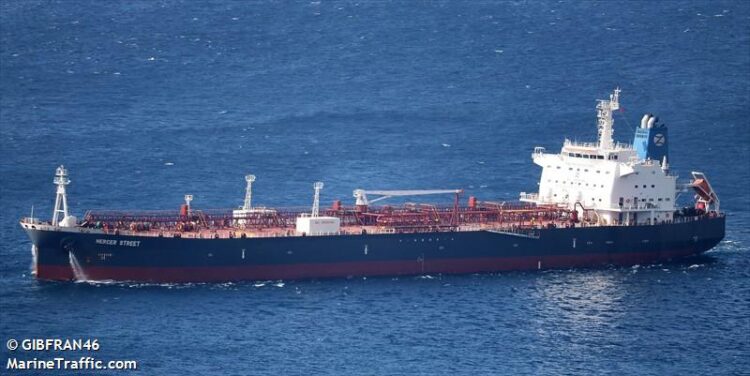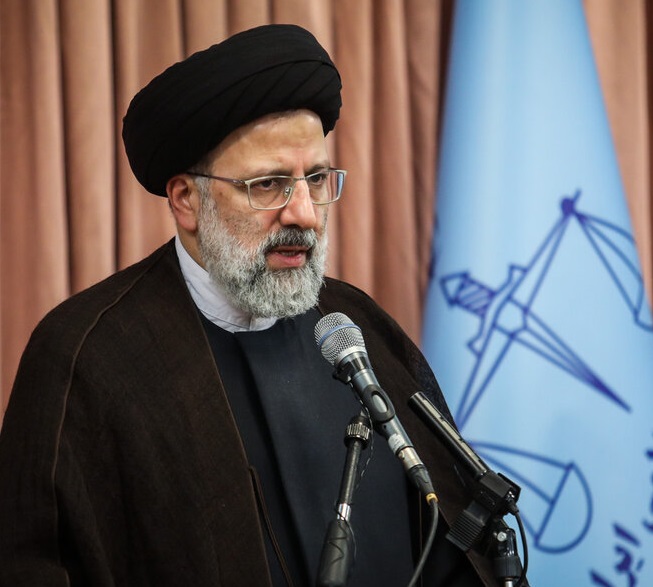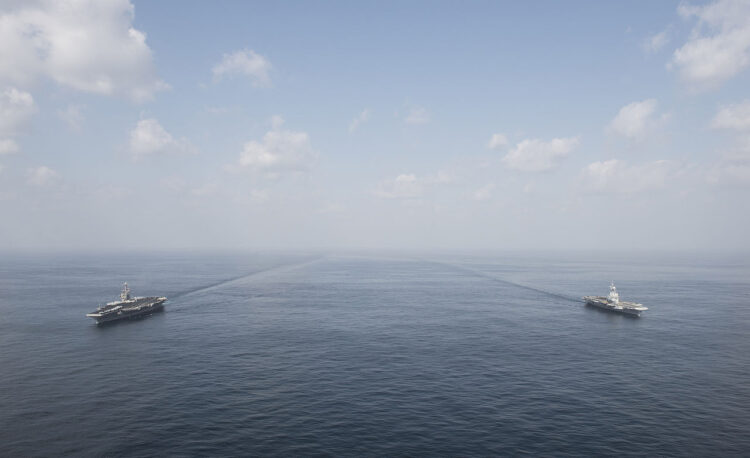Israel is carefully considering its options following the latest attack by Iran on a cargo ship plying the waters of the Middle East.
The Israeli government can opt for diplomacy, armed conflict or the status quo to deal with this serious and recurring problem.
The Mercer Street, a 600-foot-long oil tanker, was attacked on July 29 off the coast of Oman by unmanned Iranian drones. En route from Tanzania to the United Arab Emirates, it was flying a Liberian flag and was manned by a foreign crew.
The vessel is owned by a Japanese company, but is managed by Eyal Ofer, an Israeli businessman and the proprietor of Zodiac Maritime.

Several days after this incident, Israeli Prime Minister Naftali Bennett said Israel was in touch with its allies to determine what steps can be taken to deter Iran from attacking foreign ships yet again.
“The Iranians need to understand that it is impossible to sit peacefully in Tehran and, from there, to ignite the entire Middle East,” he said scornfully. “That is over.” In a sharp warning, Bennet said that Israel can, if necessary, “act alone” to retaliate.
Asked if Israel is ready to engage Iran militarily, Israeli Defence Minister Benny Gantz said, “Yes.”

At present, he added, Israel is focused on mobilizing the international community to rein in Iran. “We can’t tag Iran as solely an Israeli problem and absolve the rest of the world from this issue,” he said just days before Ebrahim Raisi, a hardliner, was officially sworn in as Iran’s new president.

Striking a more hawkish tone, Gantz declared, “Iran’s aggression in the region generally and on the maritime front, in particular, is intensifying. This is the exact reason that we must act right now against Iran, which not only strives for a nuclear military program, but also is leading to a dangerous arms race and the crumbling of stability in the Middle East.”
Ganz predicted that Iran under the presidency of Raisi — a protege of Iranian supreme leader Ayatollah Ali Khamenei — “will be more dangerous to the world than it has been so far, more destructive to the region than it has been so far, and will strive to become an existential threat to Israel. We will work to remove any such threat.”
Gantz and Bennett delivered these tough comments as Israel’s undeclared shadow war with Iran escalated last month.
The Mercer Street was not the first cargo vessel linked to Israel that has been targeted by Iran, Israel’s arch enemy since the 1979 Iranian revolution. But it was the first attack of its kind which resulted in fatalities.
The Romanian captain and a British security guard were killed, prompting Israeli Foreign Minister Yair Lapid to say, “Iran isn’t just an Israeli problem, but is an exporter of terrorism, destruction and instability that hurt all of us.”
Iran, which has repeatedly called for Israel’s destruction and supports enemies like Hezbollah and Hamas, strenuously denied its involvement in the attack.
Rejecting Iran’s denial, Bennett stated with “absolute certainty” that Iran had carried out last month’s attack and was “trying to evade responsibility.”
“Iran’s thuggishness endangers not only Israel, but also harms global interests, namely freedom of navigation and international trade,” he added. “The intelligence evidence for this exists.”
The G7 nations already have condemned Iran, and last Sunday, the European Union’s top foreign affairs official, Josep Borrell, said that “all available evidence clearly points to Iran.”
“Such reckless and unilateral actions, against international law and threatening to international peace, are unacceptable and need to stop,” he went on to say. “Freedom of navigation must be guaranteed in accordance with international law.”
British Prime Minister Boris Johnson said that Iran must “face up to the consequences.”
Charging that Iran’s action is a “direct threat to freedom of navigation and commerce,” U.S. Secretary of State Antony Blinken said that repercussions will follow. As he put it, “We are in very close contact with the United Kingdom, Israel, Romania and other countries. And there will be a collective response.”
Iran’s attacks are bound to be one of the topics of conversation when the new director of the U.S. Central Intelligence Agency, William Burns, arrives in Israel on August 10. Burns is scheduled to meet the newly-installed director of the Mossad, David Barnea, Bennett, President Isaac Herzog and Lapid.

In the past few months, several Israeli-managed cargo ships have been attacked by Iran in the Persian Gulf, the Red Sea and the Gulf of Oman. But as reliable media reports suggest, Israel initiated this secret war on the high seas for a variety of related reasons.
Since 2019, Israeli forces have been attacking ships carrying Iranian weapons and oil to Syria, where Iran has been entrenching itself militarily on the Syrian side of the Golan Heights. By one estimate, Israel has attacked at least 1o and possibly 20 or more Iranian vessels in a bid to curb Iran’s regional military and political influence.
Israel’s broad objectives are clear — to cripple Iranian efforts to help Hezbollah build a precision-guided missile program in Lebanon and to stop the flow of Iran’s oil exports, which have been subjected to international economic sanctions.
In the past, Israel has also sabotaged Iranian nuclear facilities, assassinated Iranian scientists, and struck Iranian bases in Syria. Yossi Cohen, the former director of the Mossad, recently admitted that Israel was responsible for these attacks.
Israel’s policy toward Iran appears to have hardened since Bennett’s accession to power in June.
On July 15, the Kan public broadcaster reported that the Israel Defence Forces has asked for a major increase in its budget so that it can properly prepare for an attack on Iran’s nuclear program.

On August 6, Israel’s ambassador to the United States, Gilad Erdan, publicly called for the ouster of the Islamic regime in Tehran. “In the end, we would ultimately like to see (the government) overthrown and (for there to be) regime change in Iran,” he said.
Until now, Israel has refrained from advocating regime change in Iran, focusing its energies instead on persuading major countries to impose severe sanctions on the Iranian government so that it scraps its nuclear program and ends its support of surrogates such as Hezbollah and Hamas.
Israel’s Foreign Ministry has declined to confirm whether Erdan’s remarks accurately represent Israel’s official position. Yet in all probability, Erdan would not have ventured into such sensitive terrain unless he had been given permission to do so by the Israeli government.
